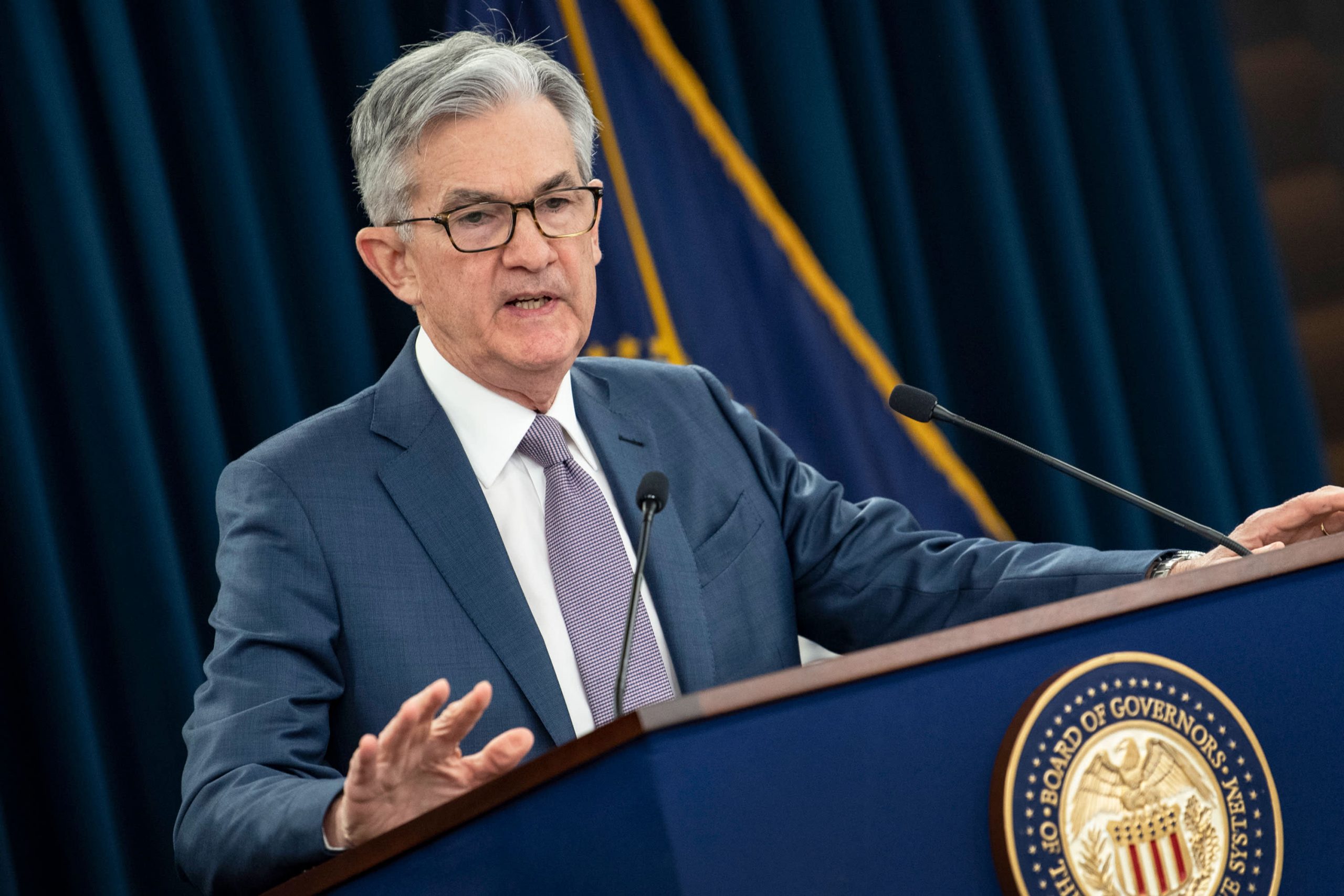US Federal Reserve Chairman Jerome Powell gives a press briefing after the surprise announcement the FED will cut interest rates on March 3, 2020 in Washington, DC.
Eric Baradat | AFP | Getty Images
Federal Reserve Chairman Jerome Powell is a heavy favorite on Wall Street to be renominated for a second term by President Joe Biden even while there are substantial disagreements with the some aspects of Fed policy.
The CNBC Fed Survey for April finds 76% of respondents believe President Joe Biden will choose Powell again. Nominated to be chair by President Donald Trump, Powell began his first four-year term in 2018. It ends in early 2022 and presidents have typically unveiled their choices in the summer or fall before the chair’s term expires.
Eighteen percent of the 34 respondents, who include fund managers strategists and economists, believe Biden will choose someone other than Powell. Leading candidates mentioned including Fed Governor Lael Brainard and White House economic advisor Jared Bernstein.
Not only do respondents think Biden will renominate Powell, 82% believe he should. The result is notable because the survey shows marked disagreements with some Fed policies. Many believe the Fed’s $120 billion in monthly asset purchases are not needed to help the economy and that the Fed should be tightening sooner in the face of much higher fiscal spending.
And, asked if climate change risk is an appropriate measure to guide the Fed in supervising financial institutions, 64% said it was not, while 36% said it was. Powell and other Fed members have increasingly talked about climate change and suggested it’s important for financial institutions to take account of the risk in their lending portfolios. The Fed currently asks financial institutions if they are taking account of climate change risks and how they do so. But Powell has tasked the Fed with figuring out if it should come up with more formal metrics. While Powell has said such assessment is well within the Fed’s mandate, he also has insisted that the Fed is not a Federal agency that will or should take the lead on combatting climate change.
More than half, 52%, did say that Biden’s plan to cut carbon emissions in half by 2030 is a worthwhile goal even though most believe it will reduce overall economic growth.
Another area of disagreement is the use of minority unemployment gaps to judge when and whether to alter monetary policy. It’s another issue Powell and the Fed have spoken about increasingly, suggesting that it’s at least one metric it will follow closely when deciding when to hike interest rates. But respondents are divided on using it, with 46% saying it should be a factor in determining monetary policy and 49% saying it should not.


 Signal2forex.com - Best Forex robots and signals
Signal2forex.com - Best Forex robots and signals




